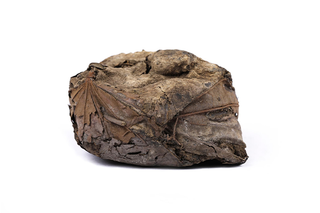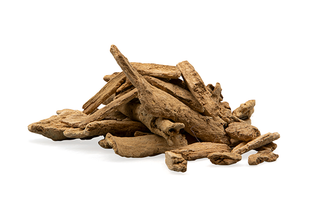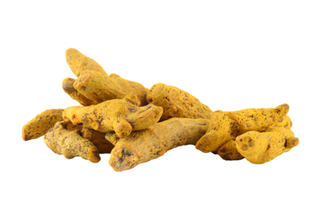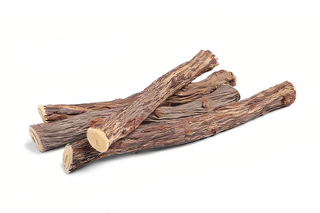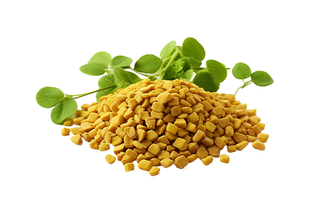
Ingredients
Methi
Methi (Fenugreek) is herb known for its health benefits, including improving digestion, regulating blood sugar.
Methi (Trigonella foenum-graecum), also known as Fenugreek, is a versatile herb widely used in culinary and medicinal practices. It is the core ingredient in our Ayurvedic Fem Verve Capsules. Its seeds and leaves are prized for their health benefits, with the seeds being particularly rich in fiber, vitamins, and minerals. Methi is commonly used in cooking, particularly in Indian and Middle Eastern cuisine, for its unique, slightly bitter taste.
Key Benefits of Methi
- Improves Digestion: Methi aids digestion, reduces bloating, and relieves constipation due to its high fiber content.
- Regulates Blood Sugar: Fenugreek is known to help lower blood sugar levels, making it beneficial for people with diabetes.
- Boosts Milk Production: Methi is traditionally used by nursing mothers to stimulate milk production.
- Supports Heart Health: It helps reduce cholesterol and triglyceride levels, promoting heart health.
- Hormonal Balance: Methi may help balance hormones, especially in women, and is often used to alleviate menstrual discomfort.
- Promotes Hair Health: The nutrients in Methi can help prevent hair loss, promote hair growth, and improve scalp health.
- Anti-Inflammatory: Methi has anti-inflammatory properties that may help with conditions like arthritis and other inflammatory disorders.
Uses of Methi
- Seeds: Used in cooking, teas, or taken as a supplement.
- Leaves: Fresh or dried, used in dishes like curries or as a garnish.
- Powder: Can be added to smoothies, soups, or mixed with water for a health boost.
Precautions
Methi is generally safe when consumed in moderation, but excessive intake can lead to digestive upset or interfere with blood sugar regulation. Pregnant women should consult a healthcare provider before using fenugreek, as it may stimulate uterine contractions.





